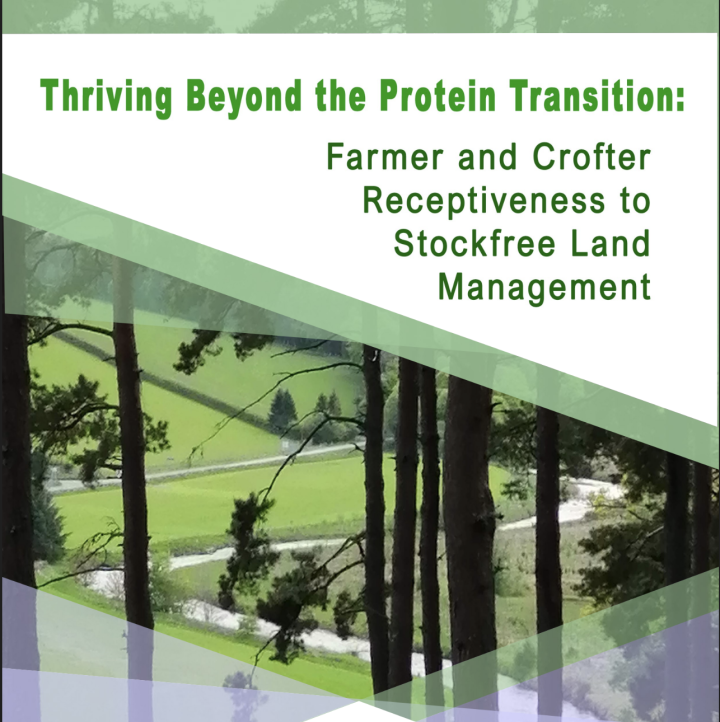A survey conducted by our UK partner organisation Stockfree Farming.
Summary
The need to reduce meat and dairy consumption as a climate change mitigation measure has been widely researched and acknowledged. Curtailing the production of these products has been discussed in terms of the shift from rearing animals for food to growing plant proteins for human consumption.
In Scotland, however, where 86% of agricultural land comes under the category of Less Favoured Areas (compared to just 18% in England), growing crops suitable for human consumption can prove challenging or even completely impracticable.
What economically viable options do Scottish farmers and crofters have to survive the protein transition and is there any openness to adopting these measures?
A qualitative, predominantly on-farm survey conducted amongst Scottish farmers and crofters assessed their willingness to shift to one or more of three livestock alternatives depending on the capability of their land: growing crops for human consumption; rewilding permanent and rough grazing land; and diversifying into non-traditional agricultural initiatives.
Contrary to the industry’s media-driven image of adherence to tradition and reactionary neophobia, the majority of participants expressed a willingness to change their farming practice with the proviso of financial support; even to transition away from livestock farming altogether.
Specific recommendations are given for the Government to repurpose existing support schemes and to implement new measures that reduce food sector emissions, and optimise land use, support nature recovery, augment food security and reinvigorate rural economies.
